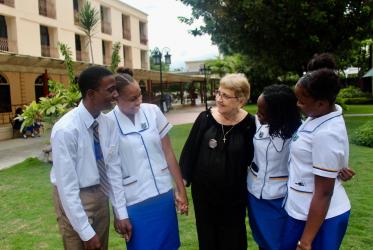Displaying 1 - 10 of 10
WCC Executive Committee envisions future for one ecumenical movement
08 November 2018
WCC Executive Committee approves Communication Strategy
08 November 2018
“If this is the ecumenical movement I want to be in!”
11 October 2018
Linette Vassel: “We need to examine power more deeply as women”
03 October 2018
"We have our work cut out for us"
10 August 2017
Marianne Ejdersten appointed as WCC director for Communication
03 December 2014






